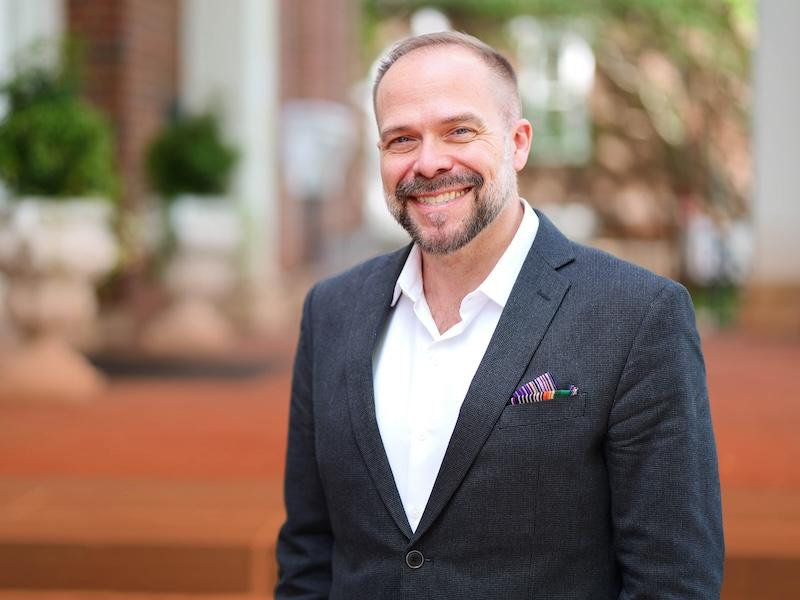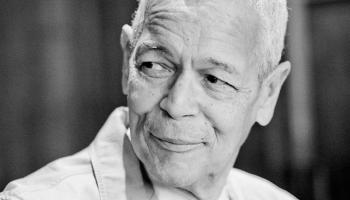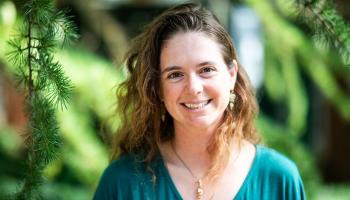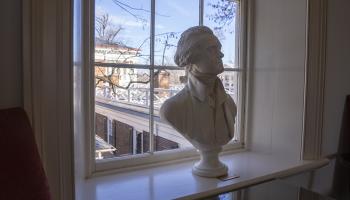David J. Getsy Awarded Prestigious Guggenheim Fellowship

David J. Getsy, the Eleanor Shea Professor of Art History at the University of Virginia, has been awarded a prestigious Guggenheim Fellowship. The honor recognizes his groundbreaking research at the intersection of art history, queer studies, trans studies and performance studies. Getsy's work has significantly contributed to understanding how non-normative genders and sexualities have shaped art and cultural history.
Getsy, who joined UVA in 2021, has focused his recent research on performance and art in the 1970s and 1980s. His latest book, Queer Behavior: Scott Burton and Performance Art, received the 2023 Robert Motherwell Book Award for outstanding publication in the history and criticism of modernism in the arts. His current project, preliminarily titled Street Addresses: Performing the Queer Life of the Street in 1970s New York, explores unauthorized public performances in New York City during the 1970s. His research is based on extensive archival work and interviews with artists, playwrights, performers and viewers.
“David Getsy's bold and innovative research exemplifies the type of interdisciplinary scholarship we value at UVA," said Christa Acampora, Buckner W. Clay Professor of Philosophy and dean of the University’s College and Graduate School of Arts & Sciences. "His work expands the boundaries of art history, challenging and reshaping the ways we think about identity, culture, and representation in profound and urgent ways.”
Getsy's new research delves into the often overlooked world of street performances in New York City during the 1970s. Marked by the rise of the gay rights movement and clashes between protesters and law enforcement in New York City in 1969 known as the Stonewall Uprising, this period of American history saw a surge in visibility for queer and trans communities. Getsy's project investigates how performance artists of the time used the streets as a stage to engage with new audiences and assert their presence in public life.
One of the key aspects of Getsy's research is the exploration of how these performances contributed to the broader public culture of New York City. By examining the economic, political and social conditions of the time, Getsy aims to provide a nuanced understanding of how these performances intersected with larger social debates in this formative decade.
“These artists were addressing the new visibility of queer and trans life by taking to the streets,” Getsy explained. “Their performances were not confined to galleries or theaters but were part of the everyday public life of the city. This project seeks to highlight the significance of these ephemeral actions and the ways they contributed to the cultural landscape of the time.”
Given to individuals who have demonstrated exceptional capacity for productive scholarship or exemplary creative ability in the arts, the Guggenheim Fellowship will provide Getsy with the support needed to complete his current project and dedicate more time to his research, furthering his work to recover histories of public engagement that are in danger of being lost.
Reflecting on the impact of the fellowship, Getsy said, “This award makes a big impact. The Guggenheim Fellowship is particularly significant because it spans the arts, humanities, the sciences and the social sciences – the full range of human inquiry. It is interdisciplinary in the broadest possible sense, and it signals that one’s work is contributing to wider discussions beyond an individual field of study.”
Getsy’s award puts him in the 100th class of Guggenheim Fellows, and this year the Guggenheim Foundation is celebrating its transformative impact its Fellows have on American intellectual and cultural life.
“At a time when intellectual life is under attack, the Guggenheim Fellowship celebrates a century of support for the lives and work of visionary scientists, scholars, writers and artists,” said Edward Hirsch, award-winning poet and President of the Guggenheim Foundation. “We believe that these creative thinkers can take on the challenges we all face today and guide our society towards a better and more hopeful future.”







